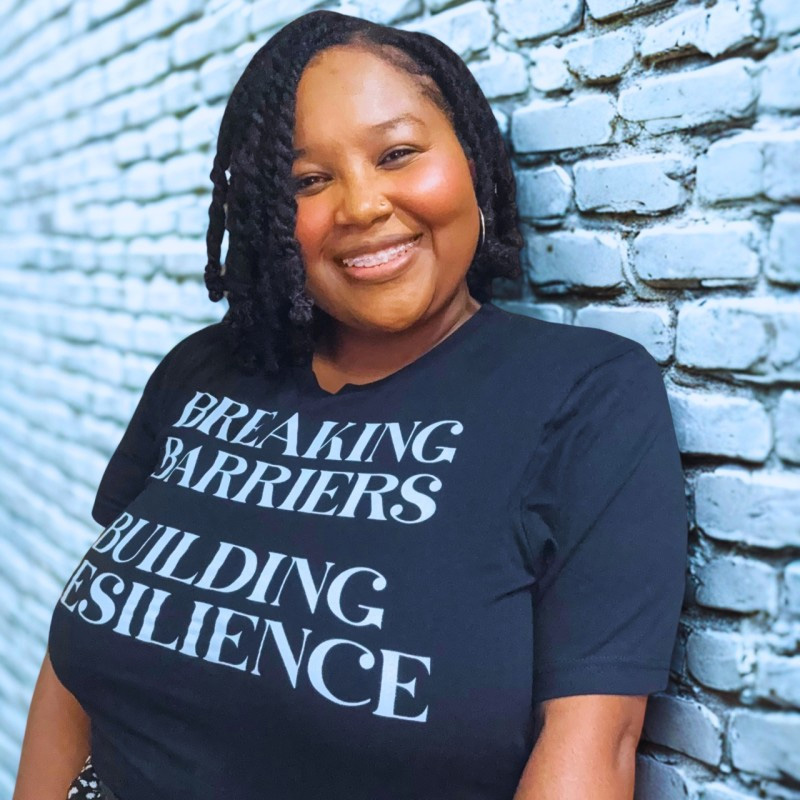Everywhere we turn, we’re being nudged toward doing more, faster. Whether it's productivity hacks on LinkedIn or the growing influence of AI in both our personal and professional lives, the push for efficiency has become relentless.
As a wife, a mom of twins, and a career-driven woman, I understand the need for streamlined systems. I value technology. I value progress. But I also know that in the work we do to advance health equity, there are moments when speed must take a backseat to sincerity.
Sometimes, we must slow down to speed up.
Genuine Connection Can't Be Automated
We often talk about community-based health in terms of access, education, and outcomes. But before we can drive those outcomes, we need to build trust—especially among people who have historically negative experiences with healthcare in this country.
Trust doesn't come from a mass email or an algorithm. It comes from people showing up. And with over half of Black Americans who say the U.S. healthcare system was designed to hold them back, not help them, there's a lot of showing up to do.
Over the past few weeks, I have had the opportunity to connect with hundreds of community members by phone. Some calls were reminders before events. Others were follow-ups to better understand why someone didn’t attend. Initially, I thought they’d be brief check-ins. Instead, they turned into deep, meaningful conversations—many stretching well beyond 30 minutes.
One conversation lasted nearly an hour. The woman I spoke with ended the call in tears—not because she was upset, but because she felt heard. “No one ever listens to me,” she said. Before that call, she had no faith in the healthcare system. Clinical research was completely off the table. But after simply sharing my mother’s story and making space for hers, she saw things differently. It wasn’t my credentials or a perfectly worded explanation that changed her mind. It was presence. It was care.
The Familiarity Factor as a Health Equity Strategy

At another recent event, I decided to personally call some of the attendees ahead of time—just to say hello, answer any questions, and introduce myself. It seemed like a small gesture, but it had a huge ripple effect.
When people arrived at the event, I saw their faces light up with recognition. “Hey! I just talked to you last night!” they’d say. Suddenly, the atmosphere shifted from a formal outreach event to something warmer and more inviting. It felt less like a presentation and more like a family gathering.
This is what we mean when we talk about community-based health—meeting people where they are, not just geographically, but emotionally. Familiarity builds comfort. Comfort builds trust. And trust opens the door for deeper conversations about health, wellness, and research participation.
Dive into more community-based health strategies with Before You Recruit: The Ultimate Guide to Advancing Health Equity in Clinical Trials.
Health Equity Strategies Must Include Humanity
There’s a place for automation. AI and technology can help us reach more people, track metrics, and manage logistics. But when it comes to truly engaging underrepresented communities in clinical research and health conversations with Affective Trust, efficiency can’t be the only priority.
If we want our health equity strategies to be effective, we must prioritize human connection alongside innovation. Because the communities we serve aren’t data points—they’re people. People who carry generational trauma, justifiable skepticism, and lived experiences that shape how they see healthcare.
At Acclinate, we talk a lot about being present. Not performative. Not transactional. Present. That means returning calls. Showing up in person when possible. Remembering names. Listening without interrupting. And yes, sometimes, it means choosing a phone call over an automated message.
A Call to Recenter the Work
These past few weeks reminded me that the most effective tools in our outreach toolbox aren’t always the newest or most high-tech. Sometimes, the most powerful thing we can offer is our time and attention.
That doesn’t mean we abandon innovation. On the contrary, we at Acclinate understand that the best use of technology—especially AI—is guided by empathy. Data can show us who to reach, but only a human connection can show us how to reach them. AI can help us scale efforts, but it takes human touch to build the kind of trust that leads to lasting change.
So, the next time you’re putting together an outreach strategy, ask yourself:
- Where can we insert more humanity into our process?
- Are we leaving space for real dialogue, or just pushing information?
- Is there someone we could call instead of email?
- Do we engage community members early on and continuously?
- Are we beginning our outreach with a listening ear?
The answers to those questions could shape relationships you build with the communities you serve, and, ultimately, the engagement metrics of your health initiative.
Making Care More Equitable Starts With Conversations
I'm proud to work at Acclinate, where our mission is grounded in trust, equity, and connection. We believe that to create truly inclusive research, we have to start by listening—really listening. And sometimes, that starts with just one phone call.
While automation may help us go faster, only human connection can take us deeper.
Let’s talk about how Acclinate can help you build trust through thoughtful, community-based health engagement.













